- April 18, 2024
-
-
Loading

Loading
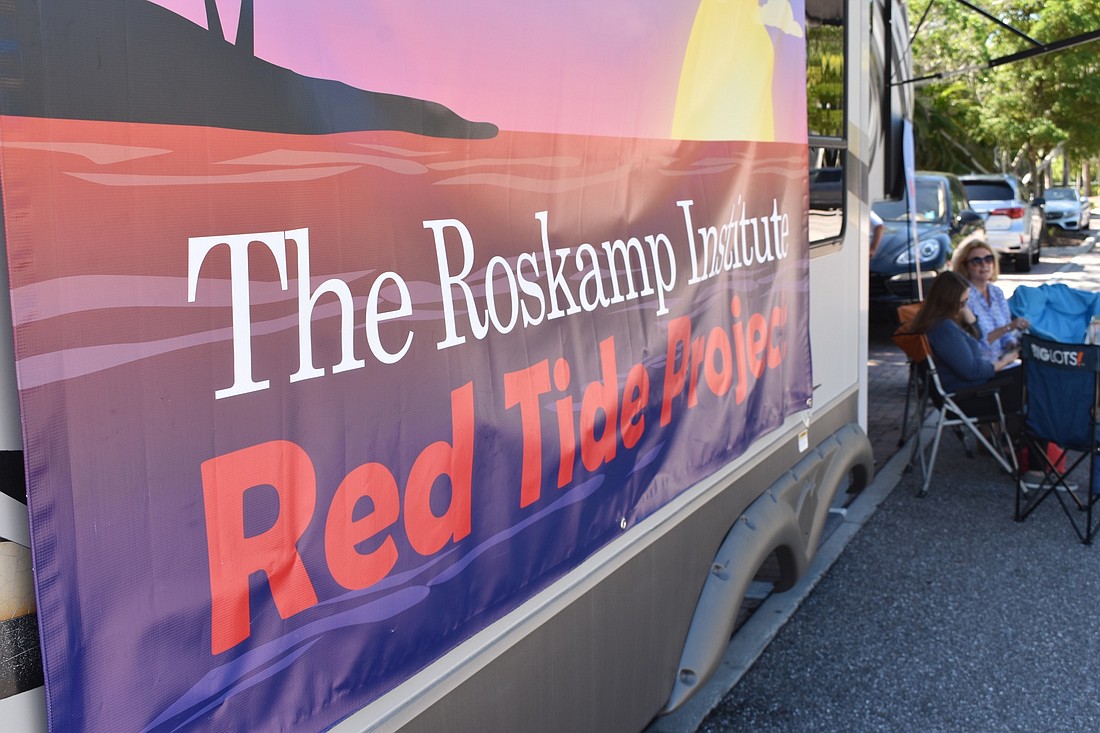
Most are aware of what red tide can do to marine life. Its effect on humans, though, is a bit tougher to calculate, which is why a local nonprofit is working to close that knowledge gap.
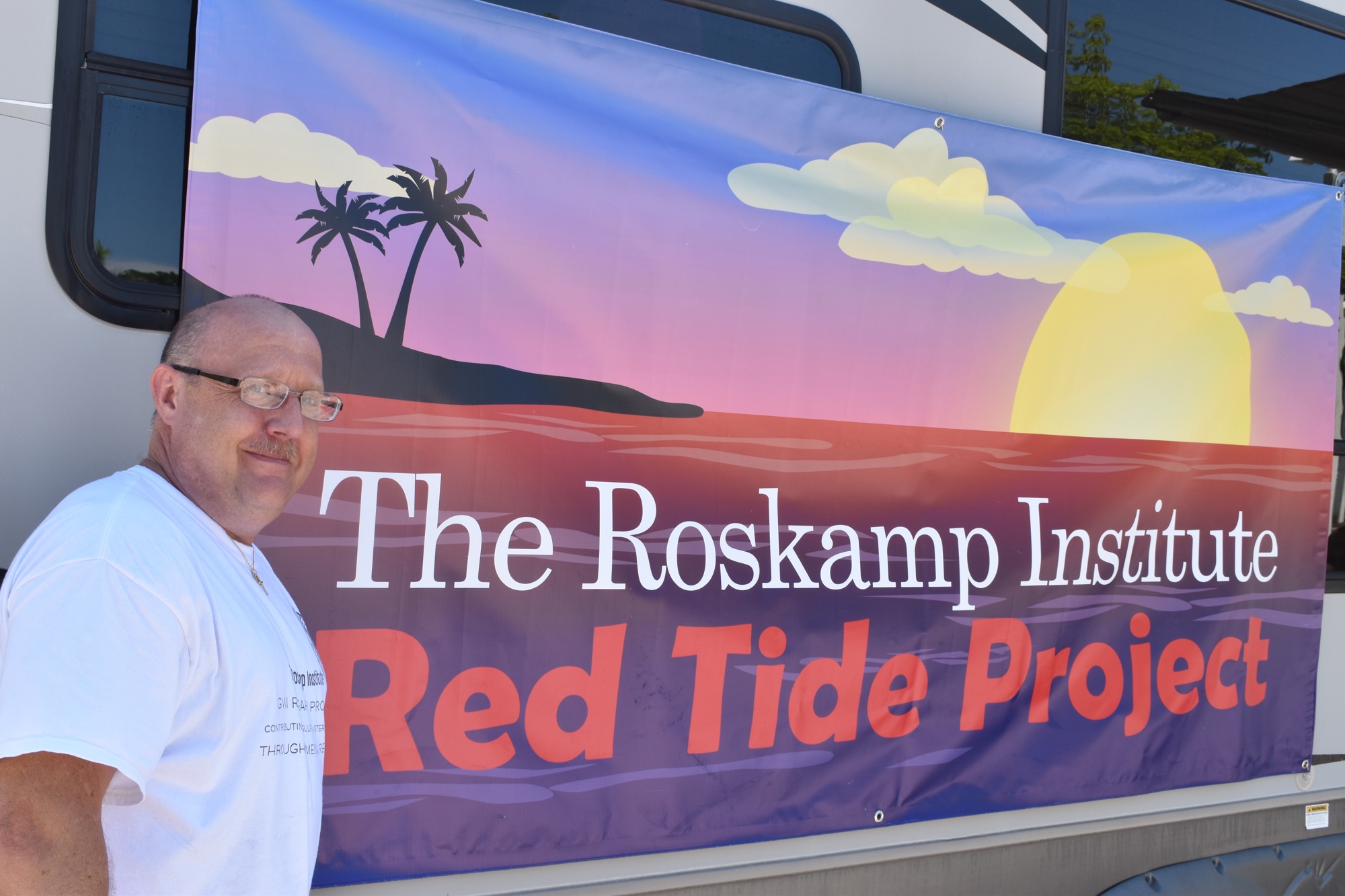
The Roskamp Institute is a biomedical research organization in Sarasota focusing on neurological illnesses such as Alzheimer’s disease and post-traumatic stress disorder. Researchers at the institute have undertaken the Red Tide Project to discover whether the single-cell alga has quantifiable negative effects on human health.
“We’re looking at the environmental things that are hurting or that could contribute to Alzheimer’s dementia,” study coordinator David Patterson said. “A lot of the research that we do on Gulf War illness compares to this because a lot of Gulf War illness was from environmental things. That correlates very well to the red tide.”
Roskamp’s red tide study plucks a random sample of participants from the region. Longboat Key is a prominent location. The institute held a volunteer drive there last weekend, which resulted in nine volunteers submitting blood and urine samples and answering a questionnaire.
People who were exposed to red tide and think they were affected by it as well as those who weren’t exposed or don’t think they were affected are encouraged to take part in the study. Those working on the study will see how physical results correlate with the questionnaire.
Michael Mullan, executive director of the Roskamp Institute, and Patterson said the study will also sample people who don’t live along the Gulf of Mexico. Subjects who live inland provide a control variable.
According to Mullan, Roskamp is working the whole of the Sarasota coast.
“We're not just interested in the residents, we're interested in people that work here as well, or do a lot of recreation in the coastal areas,” Mullan said.
This is a blind study, so blood and urine samples are matched with questionnaires not by name, but by study number, and researchers don’t know personal details about subjects.
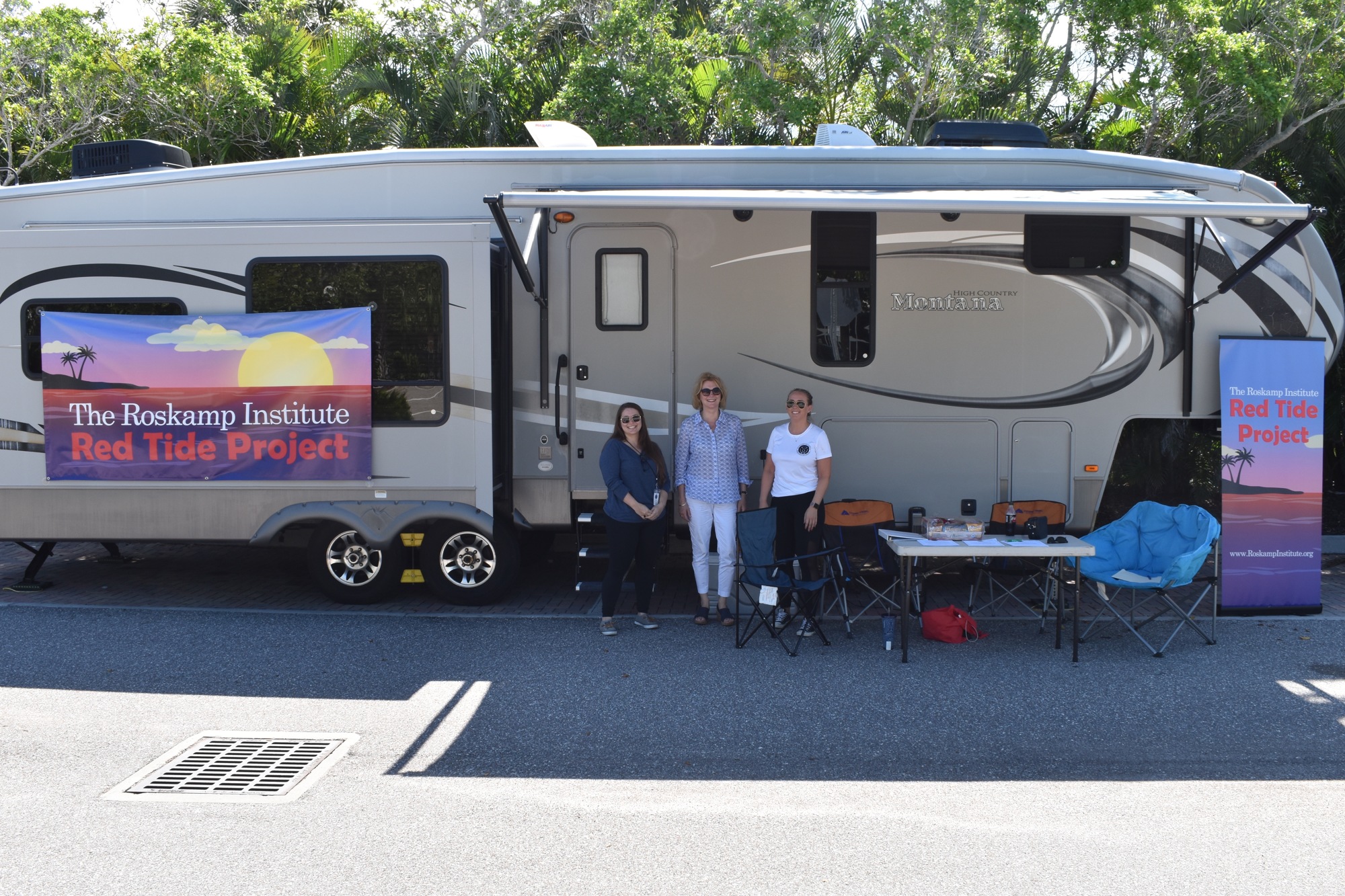
Patterson said Roskamp is looking for between 100 and 400 volunteers and has 50 to date.
Mullan and Patterson believe the study, which launched in June, will continue for more than a year and will include similar volunteer drives in Bradenton Beach, Siesta Key, Manasota Beach and other locations.
If a new red tide bloom takes place, researchers will contact study volunteers and ask them for new samples.
Both Patterson and Mullan said multiple people came into Roskamp claiming red tide was causing issues beyond respiratory irritation, which it is already known to do.
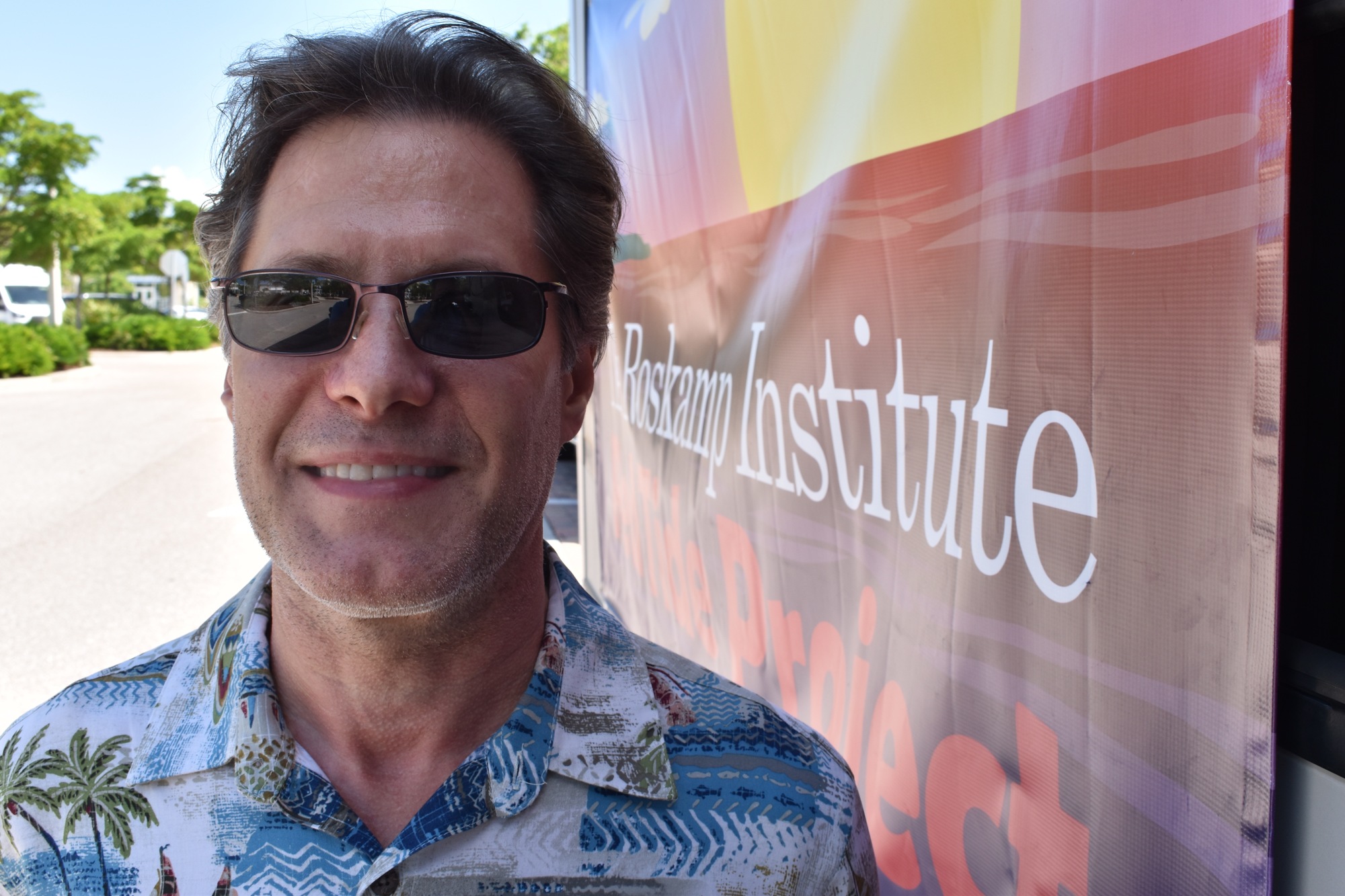
“Our official stated goal is that we’re trying to identify human environmental toxins that are associated with red tide,” Patterson said.
David Kidd, who volunteered at the drive in Longboat on Saturday, said he thinks red tide is causing serious health issues for him, but doctors haven't listened.
“I'm like a canary in a coal mine, so if something’s wrong with the environment, I'm going to notice it first,” Kidd said. “It's nice because Roskamp is the first organization to address it. Now, this may not help me. But me being a test subject and my experiences may help treat people in the future.”
Kidd added that he once loved swimming here but hasn't been to the beach in two years. He’s planning on moving out of Florida because of health issues he attributes to red tide.
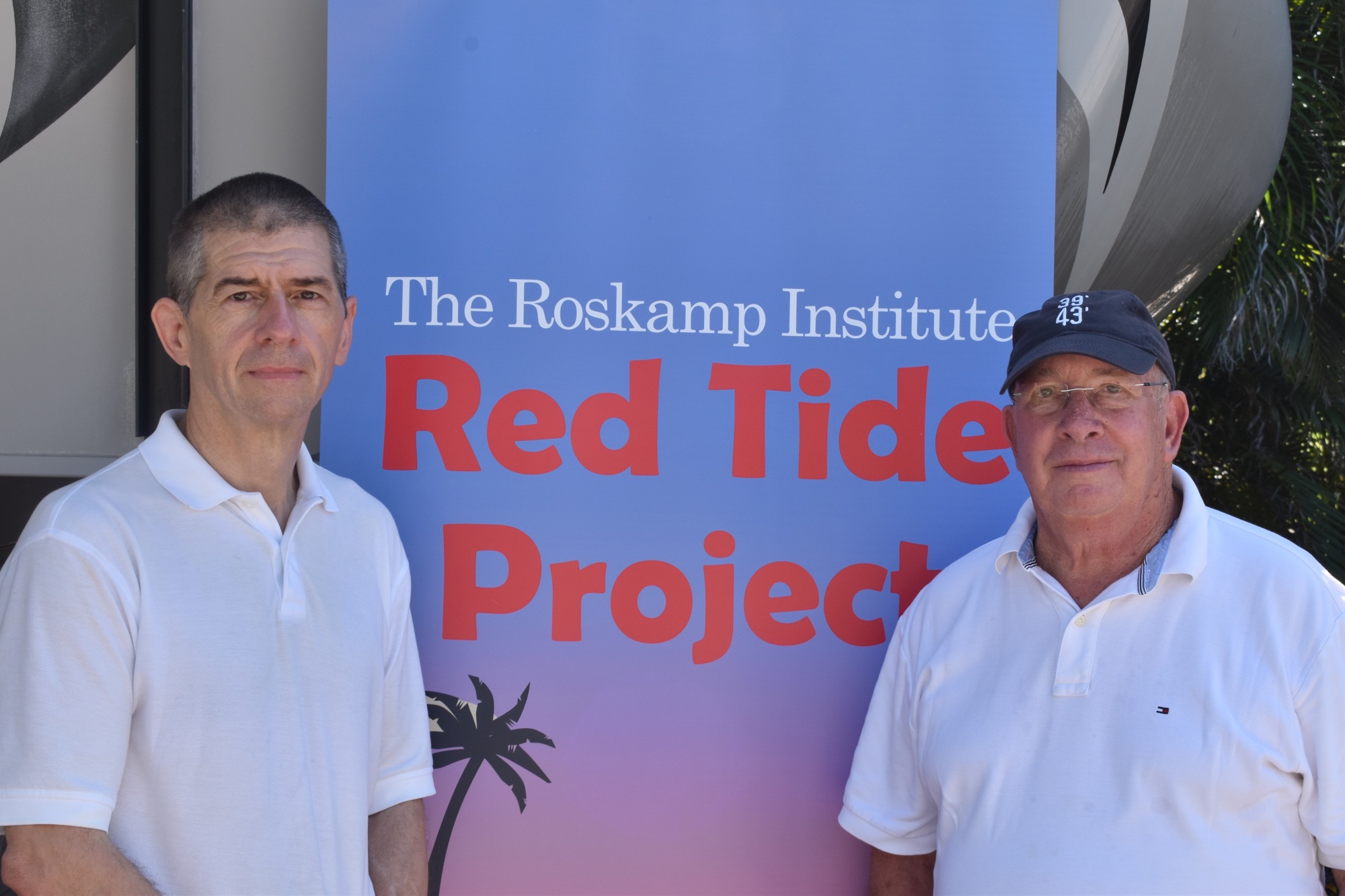
Lenny Landau, who himself authored a report on red tide, expressed frustration with how little is known about it.
“I hope they get some firm data that confirms or denies or shows what's really going on,” Landau said. “If there is a connection, there needs to be a way to monitor this stuff. We're talking about air measuring systems up and down the coast that automatically monitor air and record what's going on so that you can open the paper in the morning and you can see.”
In all, Mullan said, “I think what we want to do is take the mystery out of it.”
That’s why Latrisha Alexander volunteered with her friend on Saturday in Longboat as well.
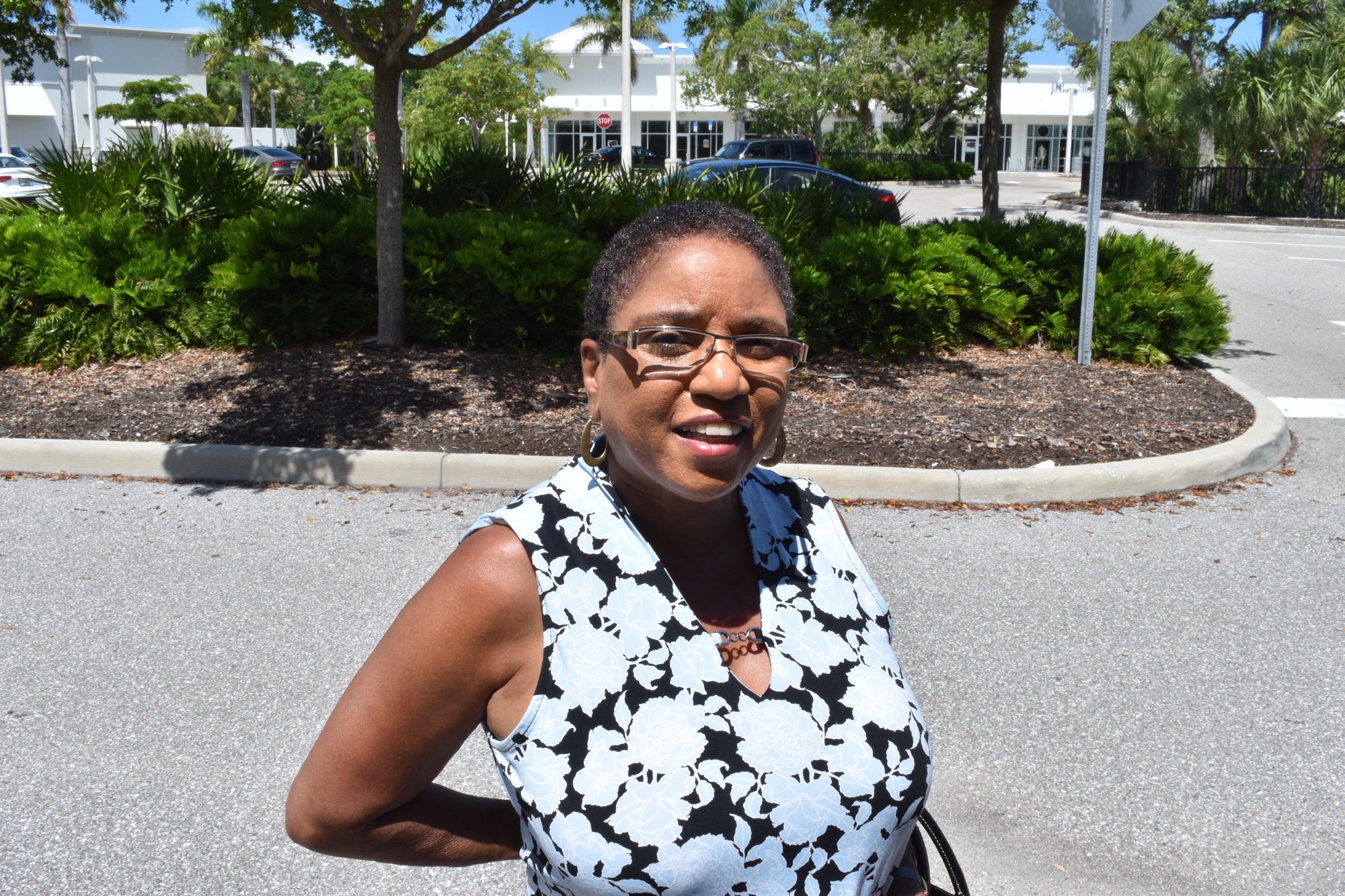
“I want to know if it's hurting me, if it's hurting the people in Florida,” she said. “Are they going to find out if it's really affecting us? Is there a medicine for it? Are we gonna get sicker?”
Alexander, like Kidd, ascribed certain personal health issues to red tide.
U.S. Rep. Vern Buchanan (R-Longboat Key) held a news conference Monday with different researchers, including Mullan, to talk about an amendment he led that was passed by the U.S. House of Representatives assigning $6.25 million from the National Institutes of Health “to research the long-term health effects of red tide and other Harmful Algal Blooms on humans,” a release from Buchanan's office read.
Patterson and Mullan pointed out that some counties have been reticent to be loud about the project because red tide affects tourism. They also said they feel pressure from the scientific community because researchers are monitoring this study, the first of its kind.
“Without the support of the politicians, without the support of the counties, without the support of the federal agencies, this is something that will go nowhere,” Patterson said. “And that's why we took the initiative and said, we’re gonna do this ourselves.”